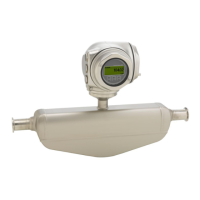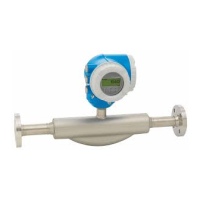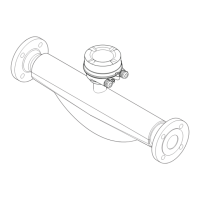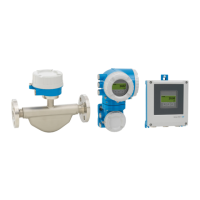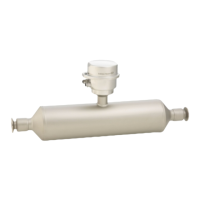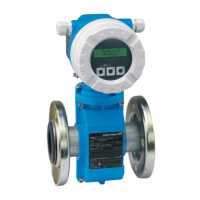Technical data Proline Promass E 300 PROFINET
240 Endress+Hauser
Base repeatability
Design fundamentals → 241
Mass flow and volume flow (liquids)
±0.075 % o.r.
±0.05 % o.r. (calibration option, for mass flow)
Mass flow (gases)
±0.35 % o.r.
Density (liquids)
±0.00025 g/cm
3
Temperature
±0.25 °C ± 0.0025 · T °C (±0.45 °F ± 0.0015 · (T–32) °F)
Response time The response time depends on the configuration (damping).
Influence of ambient
temperature
Current output
Temperature coefficient Max. 1 μA/°C
Pulse/frequency output
Temperature coefficient No additional effect. Included in accuracy.
Influence of medium
temperature
Mass flow and volume flow
o.f.s. = of full scale value
When there is a difference between the temperature for zero point adjustment and the
process temperature, the additional measured error of the sensor is typically ±0.0002 %
o.f.s./°C (±0.0001 % o. f.s./°F).
The effect is reduced if zero point adjustment is performed at process temperature.
Density
When there is a difference between the density calibration temperature and the process
temperature, the typical measured error of the sensor is
±0.0001 g/cm
3
/°C (±0.00005 g/cm
3
/°F). Field density calibration is possible.

